HP's Autonomy Mishap: From High Expectations To High Anxiety
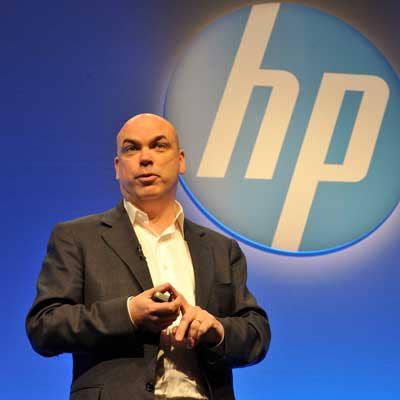
Downward Spiral
From the outset, HP characterized its $11.1 billion blockbuster acquisition of U.K. software maker Autonomy as a cloud computing game-changer aimed at driving higher investor returns with a unique software asset. Only 15 months later, HP claimed it was hoodwinked by Autonomy, taking an $8.8 billion charge against earnings after discovering what HP alleges were "serious accounting improprieties."
Here then is a look at the long, strange HP-Autonomy trip from bold action to public embarrassment.
For a closer look at the future of HP, see a preview of CRN's special report on HP available exclusively on the CRN Tech News App.
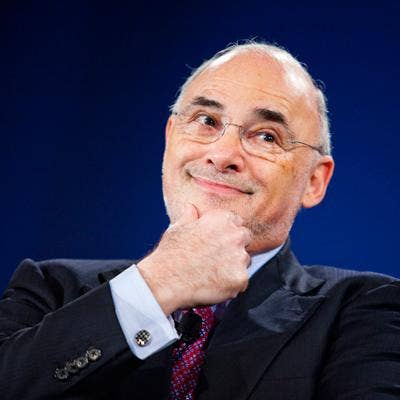
Aug. 18, 2011: HP Hails Autonomy Acquisition
HP CEO Leo Apotheker hailed the computer giant's $11.1 billion acquisition of Autonomy as "bold action" that would "squarely position HP in software and information to create the next-generation information platform and, thereby, create significant value for our shareholders." The one wild card never mentioned in the HP Autonomy announcement was that HP CFO Cathie Lesjak as later reported by Fortune Magazine had objected to the deal before the HP board of directors because of the hefty 11 times revenue price tag.
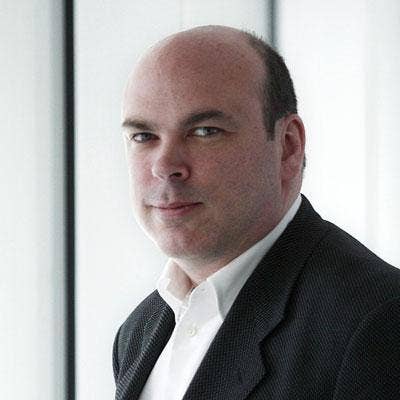
Aug. 18, 2011: High Praise For Mike Lynch
In an HP press release, Apotheker, a former executive for enterprise software maker SAP, praised Autonomy as a "highly profitable and globally respected software company, with a well-regarded management team and talented, dedicated employees." Apotheker noted he is "particularly pleased that Dr. Mike Lynch, who heads a team of brilliant scientists and employees, will continue to lead Autonomy."

Aug. 22, 2011: HP Claims Autonomy Will Reinvent Analytics
HP said in a Securities and Exchange Commission filing that the planned acquisition of Autonomy would provide it with "the ability to reinvent the $55 billion business analytics software and services space, which is growing at 8 percent annually." Further, HP said in the filing: "Autonomy's leading IDOL platform combined with HP's strength in complementary products, services and infrastructure will enable the combined business to deliver a next-generation information platform, analytical application and performance optimization solutions."
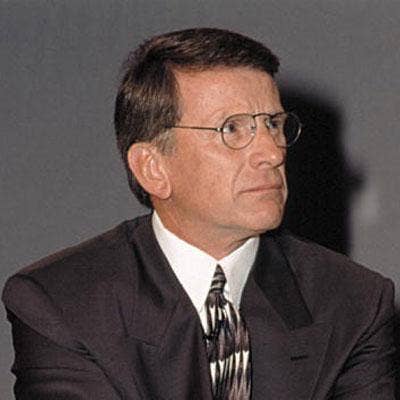
Sept. 16, 2011: Autonomy Was The Only Answer
HP Non-Executive Chairman Ray Lane continued his staunch defense of the Autonomy acquisition at the InformationWeek 500 Conference. Lane claimed the deal would make HP a leader in unstructured information management. "We need a larger software portfolio to do that," he said. Bottom line, said Lane, is that Autonomy's technology is unique. "If we want a position in information management, especially the 85 percent of the world that is unstructured, not the 15 percent that is structured, then we've got to either develop that technology or buy that technology," he said. "Autonomy was the only answer."
{C}
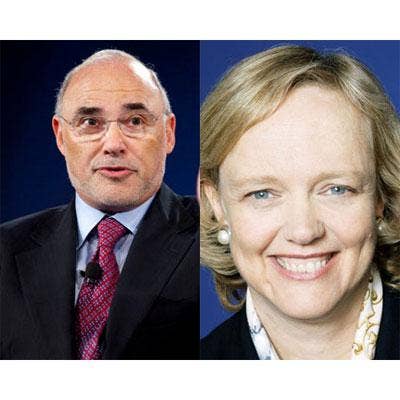
Sept. 22, 2011: HP Fires Apotheker
Thirty-five days after the Autonomy deal was announced, HP's board of directors fired Apotheker and then hired board member Meg Whitman with a $16.5 million stock option package as the next HP CEO. Whitman said that at first glance the strategy the company took with Autonomy was right, but she pledged to review "strategic initiatives." Apotheker, meanwhile, was rewarded for his 11 months on the job with a $25.2 million severance package ($7.2 million in cash and $18 million in stock).

Sept. 22, 2011: No Intent To Transform HP
New HP Executive Chairman Lane, who took a more prominent role overseeing the computer giant with a $10.6 million pay package as part of the HP CEO changing of the guard, asserted that HP's acquisition of Autonomy did not mean the board of directors was intent on "transforming" HP. "With Autonomy's enormous success and enormous profitability and synergies we can gain, we think we can build a helluva business out of it," he said. "But it has nothing to do with transforming."
{C}
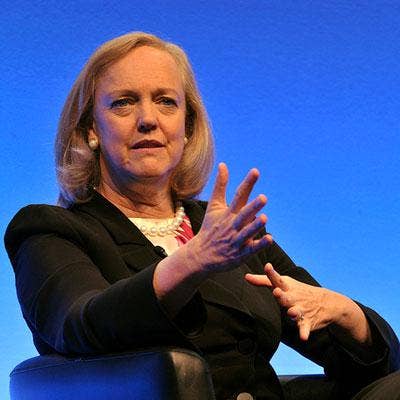
Sept. 26, 2011: Partners Urge HP To Nix The Deal
HP partners reacted to the Apotheker ouster, urging Whitman to reconsider the Autonomy deal. They said they are perplexed by the deal, which is flat out too expensive and is putting intense pressure on HP's balance sheet. "This is a company that has no business spending money or attempting complex, strategic acquisitions," Daniel Duffy, CEO of Valley Network Solutions, Fresno, Calif., told CRN. "They need to first get their house in order and restore customer and channel confidence."
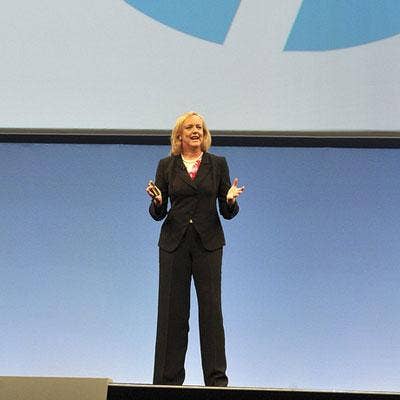
Oct. 3, 2011: HP Finalizes Autonomy Deal
HP finalized its $11.1 billion acquisition of Autonomy. Whitman said the deal "significantly increases" HP's capabilities to "manage and extract meaning" from data to "drive insight, foresight and better decision-making." Autonomy's Lynch called it a "historic day" for Autonomy, employees and customers. "We are at the dawn of a new era when it is the 'I' in IT that is changing," he said. "Not just the 'T'."

Oct. 20, 2011: HP Strategy Chief Steps Down
HP Strategy Chief Shane Robison, an 11-year HP veteran and one of the primary backers of the Autonomy acquisition along with Apotheker and Lane, announced that he would retire effective Nov. 1, 2011. The retirement announcement came after Robison with Lane at his side spoke out in defense of the Autonomy acquisition. "When you can do things like extract meaning out of emails, determine difference in images, determine tone and mood in voice, the capabilities are unlimited," Robison had told InformationWeek.
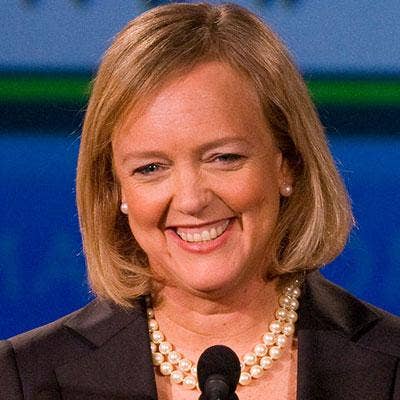
Feb. 1, 2012: Autonomy--Handle With Care
Whitman told CRN she intends to get Autonomy software into the hands of HP partners in 2012, but cautioned that HP intends to move slowly with Autonomy's integration so that the relatively new HP unit is not overwhelmed with sales leads that it can't fulfill. "We have some work to do here because our sales force is just figuring out how to sell it, too," she said. "Autonomy is about a billion-dollar company in the scale of $129 billion HP. And what I don't want to do is flood them with leads that they can't fulfill in a very high-quality way."
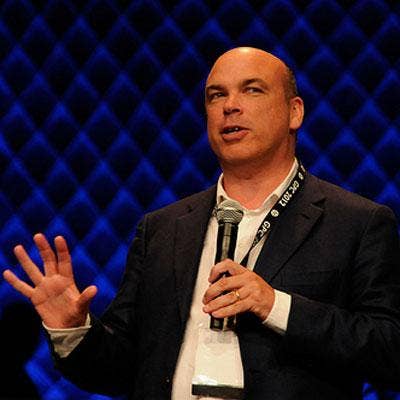
Feb. 14, 2012: Autonomy--A Unique Asset
Autonomy's Lynch told CRN that the "reason Autonomy was so valuable is it's a unique asset. There's nothing out there that has the ability to understand the meaning of human-friendly information. It's 90 percent of the information that's out there, and it's all the interesting stuff. If you're going to find a fraud, you'll find it in email." Customers, he said, "don't live their lives in rows and columns. They don't sense database tables -- they call you up, they tweet, they come to WorkSite [Autonomy's document and e-mail management solution] and that's all unstructured information. There's been an explosion of video, Voice over IP -- this is all about understanding that information. No one else does that. Most of HP's competitors have to license that technology from HP."
{C}
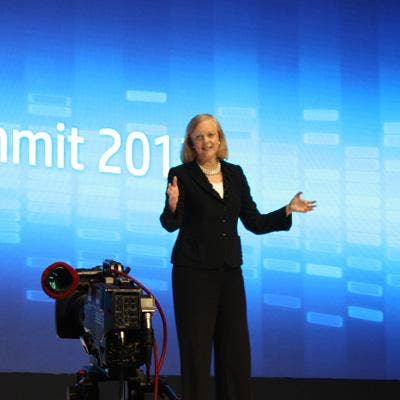
Feb. 15, 2012: No More Drama
In her first public address before solution providers, Whitman acknowledged that partners have been through a lot but said she's going to make it up to them by steering HP back in a drama-free direction. "I want to be a steady hand on the tiller for this company," she told partners. "We're going to return to being the reliable, trusted partner you can count on to build your business." Whitman also pledged to build a single HP culture, a notion that has proved elusive for HP but she said will be evident in the next six to 12 months. "I promise you, we will not let you down."
{C}

May 23, 2012: Lynch Is Fired
HP fired Lynch after Autonomy experienced what HP called a "significant decline" in license revenue. Lynch, who reportedly walked away with $800 million from the blockbuster deal, told a U.K. newspaper that HP's decision not to spin off its PC business altered HP's previous plans for Autonomy. "Once it became clear that the new chief executive's strategy was staying more with hardware, it meant some rethinking of the original plan, and its focus on our independence became blurred," Lynch told The Telegraph. Whitman, meanwhile, insisted HP was still bullish on the prospects for Autonomy. "The market and competitive position for Autonomy remains strong," she said.

May 29, 2012: An Autonomy Exodus
Autonomy was hit by a high-level executive exodus. Among the executives no longer with the company: Autonomy President Sushovan Hussain, CTO Peter Menell, CMO Nicole Egan and COO Andy Kanter. "We have had to do things the HP way and the HP way has proved to be cumbersome in getting deals done in time," one former Autonomy executive told Reuters.
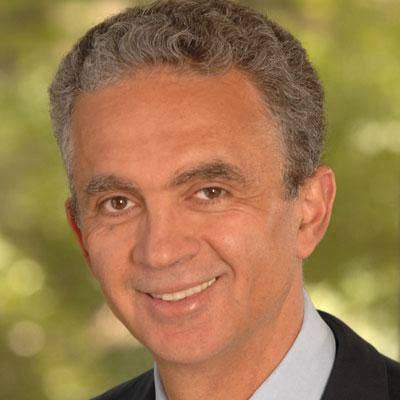
May 30, 2012: HP Hires A New Software Boss
HP hired George Kadifa, a venture capitalist and former CEO of application service provider Corio, to head the company's software business. HP said Bill Veghte, who has led HP's software business unit since 2010 and was promoted to COO, would continue to lead Autonomy.
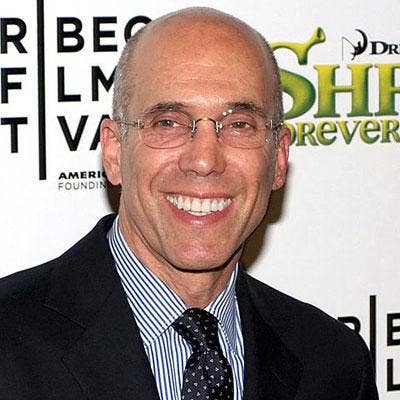
June 5, 2012: Dreamworks Seal Of Approval
Dreamworks CEO Jeffrey Katzenberg told an HP Discover Audience that he "could not be more confident" about HP's future, touting the film studio's longtime partnership with HP. He said Dreamworks is interested in using Autonomy technology to make sense of unstructured data, such as tweets, videos and emails, to gauge public response to Dreamworks films.

July 20, 2012: Lynch Starts An Investment Fund
Former Autonomy CEO Lynch set up a London based investment fund, Invoke Capital, to develop fledgling technology companies. "Our renowned business and financial leaders and world-class technologists make up a team with unrivaled experience in technology investment," boasted a statement on the Invoke Capital website. "We managed U.K. success story Autonomy's rise from tech start-up to the U.K.'s largest software company with an acquisition value of $12 billion."

July 9, 2012: HP Partners Ask, Where Is Autonomy?
With the one-year anniversary of the HP Autonomy deal imminent, HP partners told CRN they are frustrated by the slow rollout of the eagerly anticipated software and services offerings. Even partners that had obtained the OK to sell Autonomy said HP has not provided the necessary sales, support and implementation training to get them up to speed. HP, for its part, said it is in the process of integrating Autonomy with its PartnerOne and AllianceOne partner programs but did not provide any timetable for when partners would be able to get their hands on the technology.
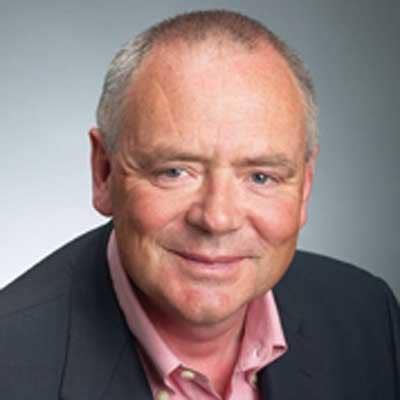
Sept. 7, 2012: HP Hires A New Autonomy Boss
HP said it hired Robert Youngjohns, former president of Microsoft North America and a 34-year technology industry veteran, as the new senior vice president and general manager of the HP Autonomy/Information Management Business Unit. HP said Youngjohns will "help build on the strong information management and analytics software that the Autonomy/IM business has developed." HP said Youngjohns will report to HP Software Executive Vice President George Kadifa.

Aug. 8, 2012: HP Takes $8 Billion EDS Charge
HP said it was taking an $8 billion write-off from its $13.9 billion acquisition of services giant EDS in 2008. The news was particularly troubling for Autonomy, given the synergies that software business was hoping to get from working closely with the HP Services unit to drive big Autonomy deals with Fortune 500 companies. HP also said HP Services Chief John Visentin was leaving the company.

Oct. 12, 2012: Autonomy A Long-Term Project
Kadifa, a member of HP's Executive Council, told Wall Street analysts that Autonomy was proving much more difficult to integrate with HP's sales operations than expected. He told analysts that HP was revamping Autonomy with a "coverage-based scalable model" to make it a better fit internally. "Autonomy is going to be a long-term project for us," he said. "We're going to be taking Autonomy from what is today a startup from an operational maturity point of view. It will take awhile. This is a not a one- to two-month exercise. This is more like a one- to two-year exercise."

Nov. 20, 2012: HP's $8.8 Billion Autonomy Charge
HP stunned investors on Nov. 20 by revealing that it was taking an $8.8 billion charge against earnings after discovering what the company called "serious accounting improprieties" by Autonomy. HP claimed it was hoodwinked by Autonomy management, alleging a "willful effort to mislead investors and potential buyers" that "severely impacted HP management's ability to fairly value Autonomy" at the time of the HP acquisition.The announcement resulted in HP shares tumbling 12 percent, closing at $11.71, the lowest level in more than a decade. If that wasn't enough, HP posted a fiscal fourth-quarter loss of $6.9 billion on a 7 percent drop in sales to $30 billion.
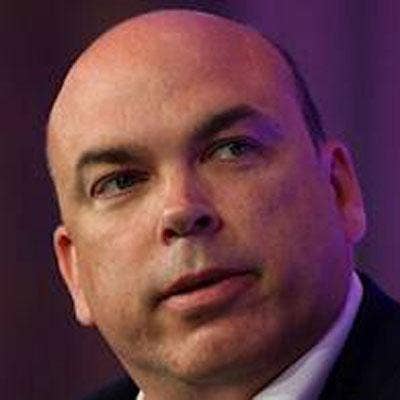
Nov. 20, 2012: Lynch Denies HP Allegations
Lynch responded aggressively to the HP charges, telling The Wall Street Journal the allegations are "utterly wrong and we reject them completely." He said the figures are "just mad. You are talking about handing them an asset worth $12 billion and they are saying $9 billion of that they are taking off. That would be such an obvious massive thing with 300 people and all these firms doing due diligence, how could you possibly not spot it?"
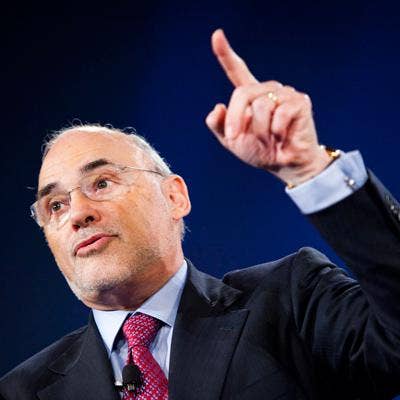
Nov. 20, 2012: Apotheker Is Stunned
Apotheker, the driving force behind the Autonomy acquisition, tells The Wall Street Journal that he is both "stunned and disappointed" to learn of Autonomy's alleged accounting improprieties. "The developments are a shock to the many who believed in the company, myself included," he told the Journal in a prepared statement. "But I also share the sentiment of HP's current leadership and continue to believe in Autonomy's market potential, as its core software expertise remains sound. Looking back on the acquisition, which closed in September 2011, the due diligence process was meticulous and thorough, and included two of the world's largest and most respected auditing firms working on behalf of HP."
{C}
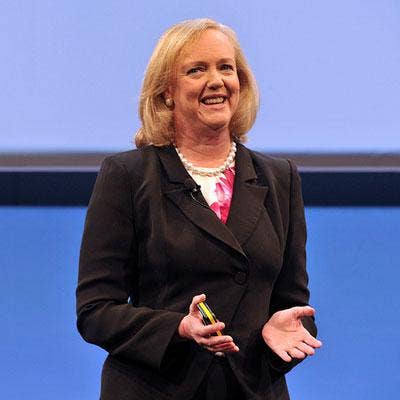
Nov. 20, 2012: Whitman Regrets Voting For The Acquisition
Whitman told CNBC that she regrets voting for the $11.1 billion Autonomy acquisition. "I regret that I voted for this deal," Whitman said. "But we are where we are and now what we need to do is turn this over to the authorities, seek redress on behalf of HP shareholders to recoup what we can." All that said, Whitman told Wall Street analysts that the company remains "100 percent committed to Autonomy and its industry-leading technology."